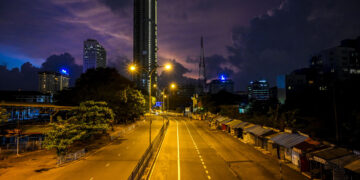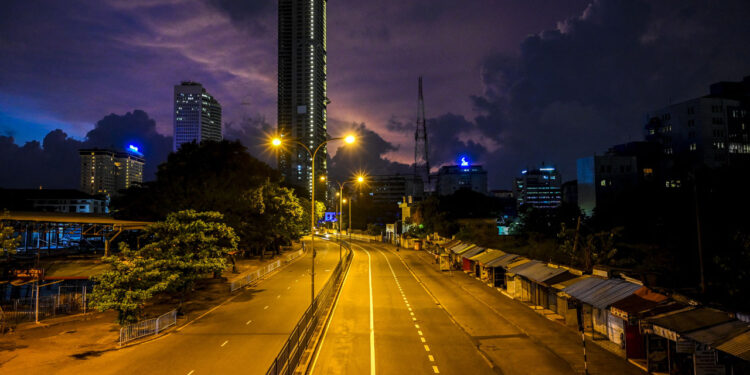By Ebi Kesiena
Sri Lanka imposed electricity rationing on Friday with the main power utility unable to buy fuel oil for its power stations as a result of the island’s worsening dollar crisis.
Oil normally accounts for around nine percent of electricity generation on the island, but a Ceylon Electricity Board (CEB) official said the company had run out of dollars to buy it from the state-run Ceylon Petroleum Corporation.
The CEB was having to rely on its coal- and hydro-powered generating facilities and was applying rotating one-hour power cuts around the island, he said.
He did not say how long the rationing would last, but added that the 160-megawatt Sapugaskanda power station and a barge-mounted 60-megawatt generator at a Colombo port had been closed for an indefinite period.
“The power cuts are being imposed because the Ceylon Petroleum Corporation has not supplied us with fuel,” the official said.
Sri Lanka’s acute foreign exchange shortage has already led to rationing of milk powder, sugar, cooking gas and cement.
The island’s tourism-dependent economy has been hammered by the pandemic and the government imposed a broad import ban in early 2020 to try to save foreign exchange reserves.
The power cuts came as the country’s energy minister warned of an impending petrol and diesel shortage within two weeks.
Udaya Gammanpila said stocks of the transport fuels could run out by “the third week of January” unless orders were placed for fresh supplies.
“I have taken up this issue with the cabinet and told them eight times now to ensure that a part of dollar inflows are reserved for oil and medicines imports,” Gammanpila said.
He also urged motorists to reduce consumption. A 10 percent increase in prices two weeks ago was insufficient to discourage driver.
The latest energy setbacks came as the country’s economic crisis showed signs of worsening, with the statistics office reporting record food inflation of 22.1 percent last month.
International rating agencies have downgraded Sri Lanka and expressed fears that the island may default on its $26 billion foreign debt after the country’s foreign reserves fell to dangerous levels.
Reserves were at $7.5 billion when the current government of President Gotabaya Rajapaksa’s administration took over in November 2019 and had fallen to $1.5 billion two years later.




































